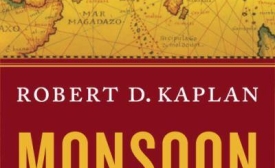china
The Hindustan Times carried a small news item the other day that, depending on your perspective, is good news or a sign of the apocalypse. It reported that a Nepali telecommunications firm had just started providing third-generation mobile network service, or 3G, at the summit of Mount Everest, the world’s tallest mountain, to “allow thousands of climbers and trekkers who throng the region every year access to high-speed Internet and video calls using their mobile phones.”
Last week the Shanghai Expo 2010 closed. On three sweltering days this summer I toured the vast and frenzied space that was the Expo. My objective was to see how the nations of the world were representing themselves to the Chinese public and how each responding to the Expo’s official theme: ‘Better City, Better Life.’
Foreign policy is typically the executive branch’s domain because that is the branch that decides who the US negotiates with and what gets offered in those negotiations. However, Tuesday’s Republican victory, particularly the GOP takeover of the House and leadership of some key committees, has the ability to affect the US's dialogue, and in some cases policy, on a few key US relationships with other countries.
Today China’s projection of “soft power” involves a $7 billion international radio and TV broadcasting campaign. In funding, languages reached, frequencies used, and hours on the air, it already outpaces the two other major international broadcasters: Voice of America (VOA) and the BBC World Service.
"Considering not only the spreading of culture and sharing of experience on the development of culture, but also the appreciation of each other's cultural fruits, cultural exchanges between China and France weigh a lot in bilateral relations," a Chinese diplomat told Xinhua in a recent interview.
What is going on here? China, it turns out, wants to increase its soft power by having Xinhua compete with news organizations like CNN and the BBC and is hiring a large number of western journalists. In fact, the government is pouring money into this effort.

Let’s begin with a quiz. What and where is Gwadar? Few people can answer that today, but some in the know believe that within 20 years, it will become the next Dubai.
Andreas Fuchs and Nils-Hendrik Klann of Germany University of Geottingen looked at 159 countries' trade patterns with China between 1991 and 2008 to see what effect a high-level meeting with the Dalai Lama had on bilateral trade.







